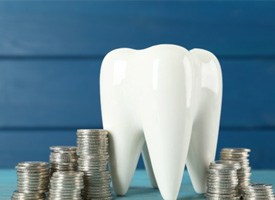Porcelain Veneers for Pittsburgh
By Cosmetic Dentist Dr. Dan Rairigh

Porcelain veneers help restore the beauty of your smile by fixing crooked, chipped, or discolored teeth. Veneers are strong, long-lasting, and stain-resistant.
If you are interested, contact us today for a free consultation!
What are Dental Porcelain Veneers?
Veneers are one of the most effective cosmetic dental treatments available to give you the smile you’ve always dreamed of. Porcelain veneers, also referred to as dental veneers, teeth veneers, or dental porcelain laminates, are wafer-thin shells of porcelain that are bonded onto the front of teeth to create new, cosmetic enhancement.
What is the Dental Porcelain Veneer Procedure?
Veneers typically take two visits to complete. During the first visit, the teeth are smoothed and shaped to allow for a proper fit. Impressions are taken to fabricate models on which the veneers are made. At the end of the first visit you will leave wearing temporary veneers that will look as natural as possible and will have a proper fit. This allows you a chance to evaluate and provide your insight on shapes and color. After about three weeks, you return to have the custom veneers bonded into place.
What are the Benefits of Porcelain Veneers?
- Strength – They can last much longer than composite resin bonding or a chairside composite veneer.
- Natural Vibrancy – To the untrained eye, they will look very similar to natural teeth.
- Stain Resistant – Each porcelain veneer has an extremely hard surface that has been treated with a glaze and put into an oven to seal the surface.
- Quick Turnaround – A smile makeover with veneers is typically completed in two to three weeks.
- Long Lasting – They are meant to last ten years or longer with good sense and proper hygiene. Regular visits to the dentist will continue to be necessary to ensure they are maintained properly.
Porcelain Veneers are Recommended for Fixing:
- Tooth Length – Dental veneers can withstand length changes with plenty of strength.
- Eliminate Gaps – Veneers provide instant orthodontics.
- Whiten Teeth – Natural veneers allow you to choose the color of your new smile.
- Overlapped/Rotated Teeth
- Chipped/Fractured Edges – Layered veneers are strong enough to withstand chewing and future chipping.
- Aged Fillings
- Misshapen Teeth – Enamel-like veneer shells overlay the undersized teeth to rebuild to natural contours.
When these restorations are performed by Dr. Rairigh, they will appear natural to the untrained eye and will feel the same as your natural teeth.
Understanding the Cost of Veneers

Veneers are great, but you may worry about their price. That’s a fair concern – dental insurance usually doesn’t cover the shells. Even so, the cost of veneers varies by patient. You’ll need to consult our dentists for a more precise estimate. Once you have, we’ll strive to make your veneers more affordable. Our office will even outline its other cosmetic procedures and financing options. If you’d like more details, keep reading or call us today!
Cost vs. Cosmetic Dentistry: What’s Right for Me?

Sure enough, our practice offers the best porcelain veneers possible. You won’t be disappointed in the shells’ quality. Still, it’s a good idea to consider our other services as well. Every cosmetic treatment has its own distinct price and effects. By looking them over, you’ll get care that makes your new smile cost-effective.
With all that said, review the following options:
- Direct Bonding – Direct bonding quickly and cheaply hides smile flaws with tooth-colored resin. In exchange, though, its effects are short-lived; you’ll need touchups every few years.
- Teeth Whitening – Per its name, teeth whitening brightens your smile. It uses a special bleaching gel to remove stains from your enamel. In doing so, it helps whiten your grin by six to eight shades! Still, the option only affects tooth color; it won’t change the shape or position.
- Porcelain Veneers – Veneers are thin shells placed on the fronts of teeth. Once situated, they hide a wide range of smile flaws. (These include chips, cracks, stains, and more.) Their porcelain material further ensures they blend seamlessly with your smile. Even so, do note that their versatility makes them pricey.
- Smile Makeover – Rather than its own treatment, a smile makeover combines two or more cosmetic dental procedures. That means it’s the most expensive form of cosmetic dentistry.
How to Make Veneers Affordable

Remember, dental insurance usually won’t cover veneers. Most policies view the shells as an unneeded luxury. That said, exceptions exist; a given policy may cover veneers if the shells protect a damaged tooth. So, confirm your benefits before deciding anything. Our team will even contact your insurance provider on your behalf.
Of course, insurance isn’t the only way to make veneers affordable. You can also rely on a dental practice’s payment options. If you find a good one, veneers could easily fit your budget.
Just look at Advanced Dental Solutions of Pittsburgh, for example. We offer flexible financing through CareCredit, a reputable third-party financier. By working with them, you could pay for veneers in monthly installments. That way, you could cover the treatment price gradually instead of doing so all at once.
Clearly, you can trust us to give you pretty and budget-friendly veneers. Given that fact, book a consultation visit at our office! We’ll gladly provide you with a top-notch grin that doesn’t “break the bank.”
What is the Difference Between Porcelain Veneers and Lumineers?
Lumineers is a trademark name brand for a specific type of “no prep” porcelain veneer. Lumineers are pressed from ingots of Cerinate porcelain and stained for coloring. This type of porcelain gains its appeal for the lack of dental injection (numbing) and speed of appointments. Lumineers work best for candidates with spacing between their teeth or patients with smaller teeth in size that are tilted toward the tongue. The primary limitations come from the concept of “no prep.” Because the natural tooth is not prepped, the thickness of porcelain material will create a bump at the gum line that can catch plaque and food debris. It is also challenging to have a drastic color change with Lumineers due to the thinness of the porcelain.
It is our opinion that the most ideal porcelain veneer is one using the minimal or traditional preparation technique with layered beautiful veneers for natural contours and healthier gums!
Veneers FAQs

Veneers in Pittsburgh can create the flawless smile you desire; however, they are a big commitment. Most people have a few concerns before they are ready to move forward with the procedure. Your cosmetic dentist will explain everything during your consultation for veneers . While you wait, here are the answers to some frequently asked questions.
Are veneers permanent?
Unfortunately, veneers aren’t permanent, but they aren’t considered reversible, either. Your cosmetic dentist in Pittsburgh will have to remove a small amount of enamel to ensure the veneers fit your teeth properly. While this doesn’t harm the health or structure of your teeth, your enamel won’t grow back. Therefore, your teeth will always have to be covered by restorations, whether crowns or veneers. You won’t have to worry about replacements often because veneers can last for a decade or longer with the right maintenance. If you are concerned about removing enamel, ask your dentist about Lumineers. They offer many of the same benefits as veneers without altering your teeth.
How many veneers will I need?
Your dentist can apply a veneer to a single tooth, such as to fix a chip or crack. However, the overall goal of the procedure is to improve your entire smile. Your dentist will probably recommend placing veneers on the teeth most visible when smiling. Since every smile is unique, there isn’t any way to know how many you’ll need without first examining your mouth. Some patients require 6 to 8, while others may need 10 to 12.
Do veneers feel like your real teeth?
It may take a few days to adjust to having your veneers in your mouth, but in no time at all, you may forget they aren’t part of your natural smile. Many patients report their veneers to feel like their real teeth. You won’t have to worry about any ledges or ridges when running your tongue across your teeth. Your veneers will fit like a glove thanks to advanced technology and the etching process. Since modern veneers are made of porcelain, they are ultra-thin. Your teeth won’t feel bulky, so you can smile, laugh, and eat with confidence.
Can I use my dental insurance to pay for veneers?
Veneers are considered elective, so it’s rare for dental insurance to cover their cost, but there are some exceptions. If they are necessary for your oral health, you can use your coverage to offset the cost. This can be the case when needing replacements because your teeth must remain covered to prevent tooth decay. If applicable, we will work on your behalf with your dental insurance to maximize your annual coverage. If you can’t use your insurance, or there is a remaining balance, our office offers several financial solutions to keep a picture-perfect smile affordable. Besides traditional payment methods, we also offer third-party financing. You can pay for your new smile using monthly installments instead of having to pay a lump sum. We will review all your options to find the options that accommodate your budget.
What Happens to the Teeth Under Veneers?
Many patients worry that their teeth will be damaged in the process of getting veneers, but that’s thankfully not the case. While it’s true that some enamel must be slightly thinned for them to fit correctly, the amount removed is generally no thicker than a contact lens. Plus, the bonding material used to attach it is considered perfectly safe.
You might think that once your teeth have an added shield, you don’t need to worry about cavities anymore. However, you must maintain a consistent at-home dental hygiene routine of brushing and flossing twice daily to prevent issues like tooth decay and gum disease that could cause your prosthetics to fail. Also, visiting our team every six months for routine checkups and cleaning allows us to catch and address any areas of concern, like loose veneers, before they can progress.
Is There Anything I Can’t Eat With Veneers?
Once we send your impressions and images to the lab to begin creating your restorations, we’ll provide you with temporary ones to safeguard your smile until they arrive. These are less durable than your permanent veneers, so it’s important to avoid foods known to harm them. For instance, try to steer clear of anything too hard that might chip, crack, or dislodge them, like raw fruits, veggies, or ice cubes. It’s also a good idea to stay away from sticky candies and foods that could yank them out of place.
Your final veneers will be much more resilient, but it’s still wise to avoid foods that are too hard or crunchy that could injure them or darkly pigmented ingredients that could stain.
Do Veneers Give You a Lisp?
Although they’re incredibly thin, veneers do add an unfamiliar thickness to the surface of your teeth that can impact your speech patterns. It’s normal to develop a lisp or other challenges before your tongue and other supporting muscles of your mouth acclimate to the upgrade. This issue commonly affects how patients pronounce specific sounds, like “s” and “v”, but can be overcome with time and practice.
These changes to your enunciation usually subside on their own after a couple of weeks as you acclimate to your veneers, but if the problem persists, please contact us. Sometimes, thinning your prosthetics slightly is all that’s needed to restore your conversational skills.
How Long Do Veneers Last?
Veneers are a popular way to mend or mask chips, cracks, discoloration, minor gaps, and slightly crooked teeth, but many patients hesitate to invest in them if they don’t know how long they’ll last. Thankfully, they’re known to be incredibly resilient and can last many years with the right care. For example, in 2012, a study found that 95% of these restorations last 5 years after their initial placement, 94% lasted 10 years, and 83% lasted 20 years. They might not require repairs or replacement for another 30 years if they're well-maintained!
You can elongate their lifespan by:
- Keeping up with your at-home dental hygiene routine.
- Scheduling regular dental appointments every six months.
- Avoiding overly hard, sticky, or pigmented foods that could injure or stain them.
